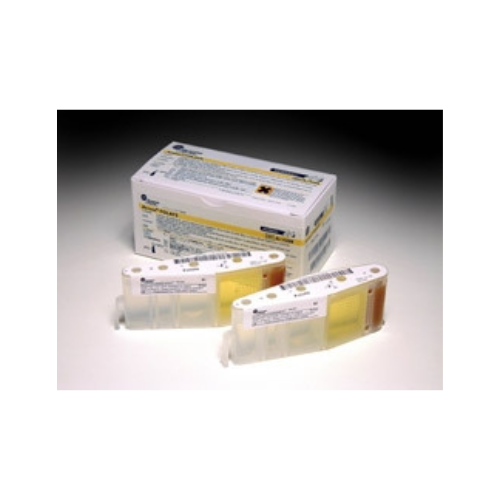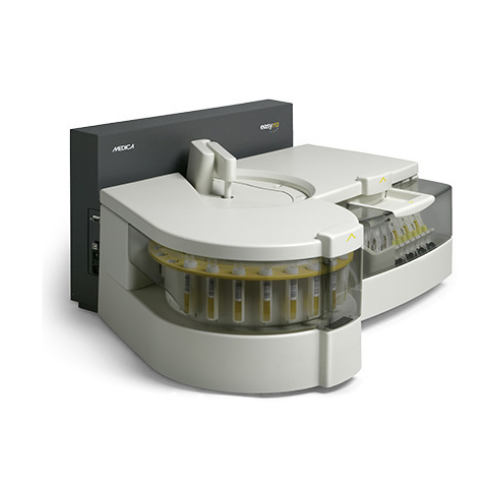For Business Use Only. Does Not Ship to Residential Addresses. For use inside an Analyzer, Sold Separately.
B63284 Beckman Access TSH (3rd IS) 2 x 100 Determinations
Product Code: B63284
Manufacturer: Beckman Coulter
Shipping Weight: 10.00lbs (4.54kg)
Specifications
Brand: UniCel® DxL
Manufacturer: Beckman Coulter
Country of Origin: United States
Application: Reagent
For Use With: For use with Access Immunoassay Systems
Number of Tests: 100 Tests
Sample Type: Serum / Plasma Sample
Storage Requirements: Requires Refrigeration
Test Name: Thyroid Stimulating Hormone (TSH)
Test Type: Thyroid / Metabolic Assay
Volume: 2 Packs
Intended Use
The Access TSH (3rd IS) assay is a paramagnetic particle, chemiluminescent immunoassay for the quantitative determination of human thyroid-stimulating hormone (thyrotropin, TSH, hTSH) levels in human serum and plasma using the Access Immunoassay Systems. This assay is capable of providing 3rd generation TSH results.
Summary and Explanation
Human thyroid-stimulating hormone is a glycoprotein hormone consisting of two noncovalently-bound subunits: an α subunit, which is nearly identical to the α subunits of human luteinizing hormone (hLH), human follicle-stimulating hormone (hFSH), and human chorionic gonadotropin (hCG), and a β subunit, which is responsible for immunological and biological specificity.
TSH, released from the anterior pituitary, is the principal regulator of thyroid function, stimulating the synthesis and release of thyroid hormones thyroxine (T4) and triiodothyronine (T3). T3 and T4 regulate biochemical processes that are essential for normal metabolism. The synthesis and secretion of TSH is stimulated by thyrotropin-releasing hormone
(TRH), which is produced by the hypothalamus in response to low levels of circulating T3 and T4. In contrast, elevated levels of T3 and T4 suppress the production of TSH. Collectively, this negative feedback system is referred to as the hypothalamic-pituitary-thyroid axis. Any alteration in the function of this axis can influence the levels of TSH, T4, and T3 in circulation.
The principal clinical use for TSH measurement is for the assessment of thyroid status. TSH is measured in conjunction with thyroid hormones or antibodies to: 1) detect or exclude hypothyroidism or hyperthyroidism; 2) monitor T4 replacement treatment in hypothyroidism or antithyroid treatment in hyperthyroidism; 3) monitor TSH suppression in thyroid cancer patients on thyroxine therapy; and 4) assess the response to TRH stimulation testing.
Reference ranges for TSH may vary, depending on the method of analysis, and do not necessarily equate to cut-offs for diagnosing thyroid dysfunction.
As methods achieving third-generation sensitivity have become available, TSH measurements are also used to identify subclinical or latent hypothyroidism or hyperthyroidism. Third generation methods for TSH measurement are defined as achieving a functional sensitivity of 0.01-0.02 µIU/mL (mIU/L) with an interassay %CV ≤ 20%. Clinical laboratories may use these more sensitive and precise methods to distinguish different levels of TSH suppression associated with Graves’ disease and subclinical hyperthyroidism and to assist in the diagnosis of gestational and postpartum thyroid diseases.











